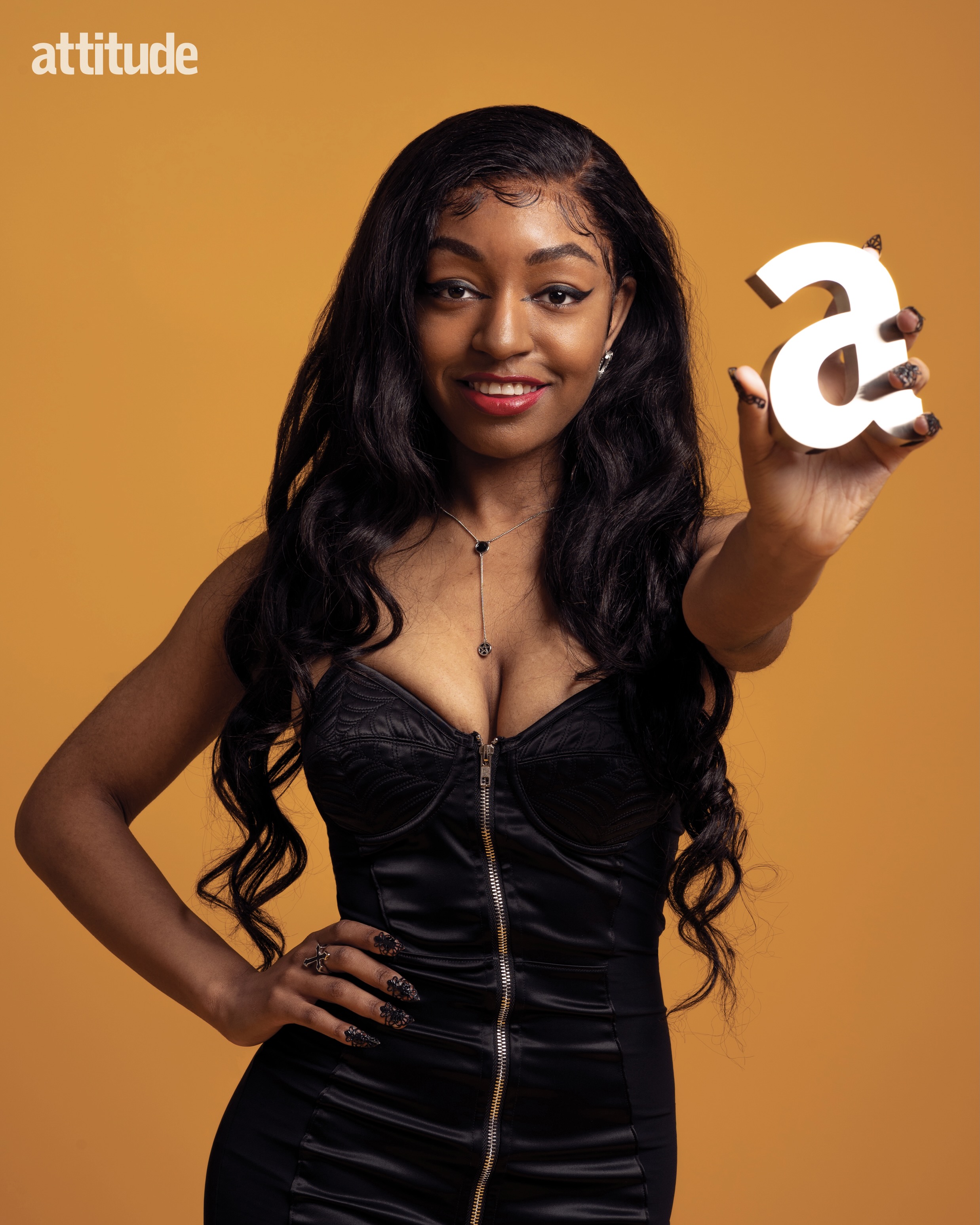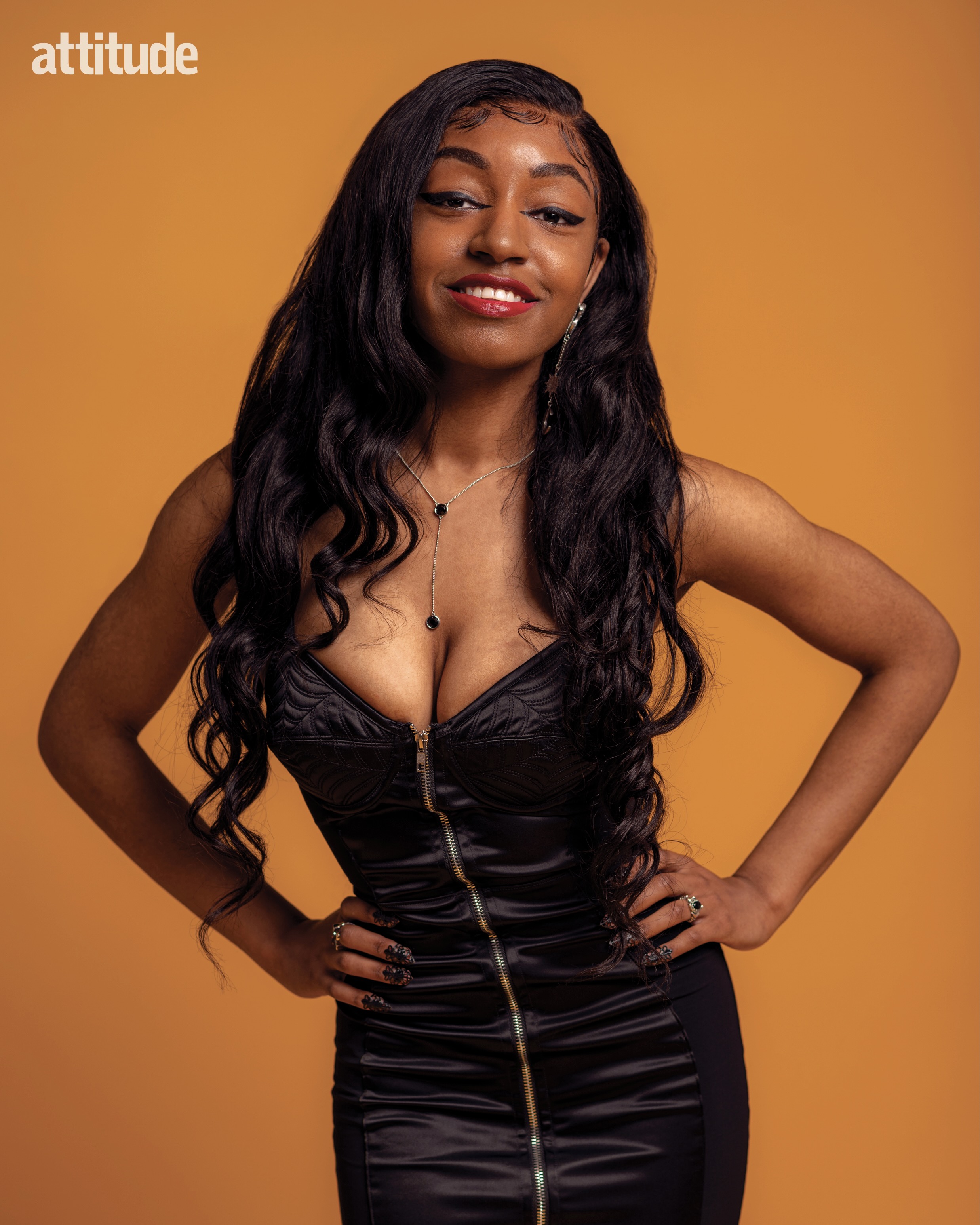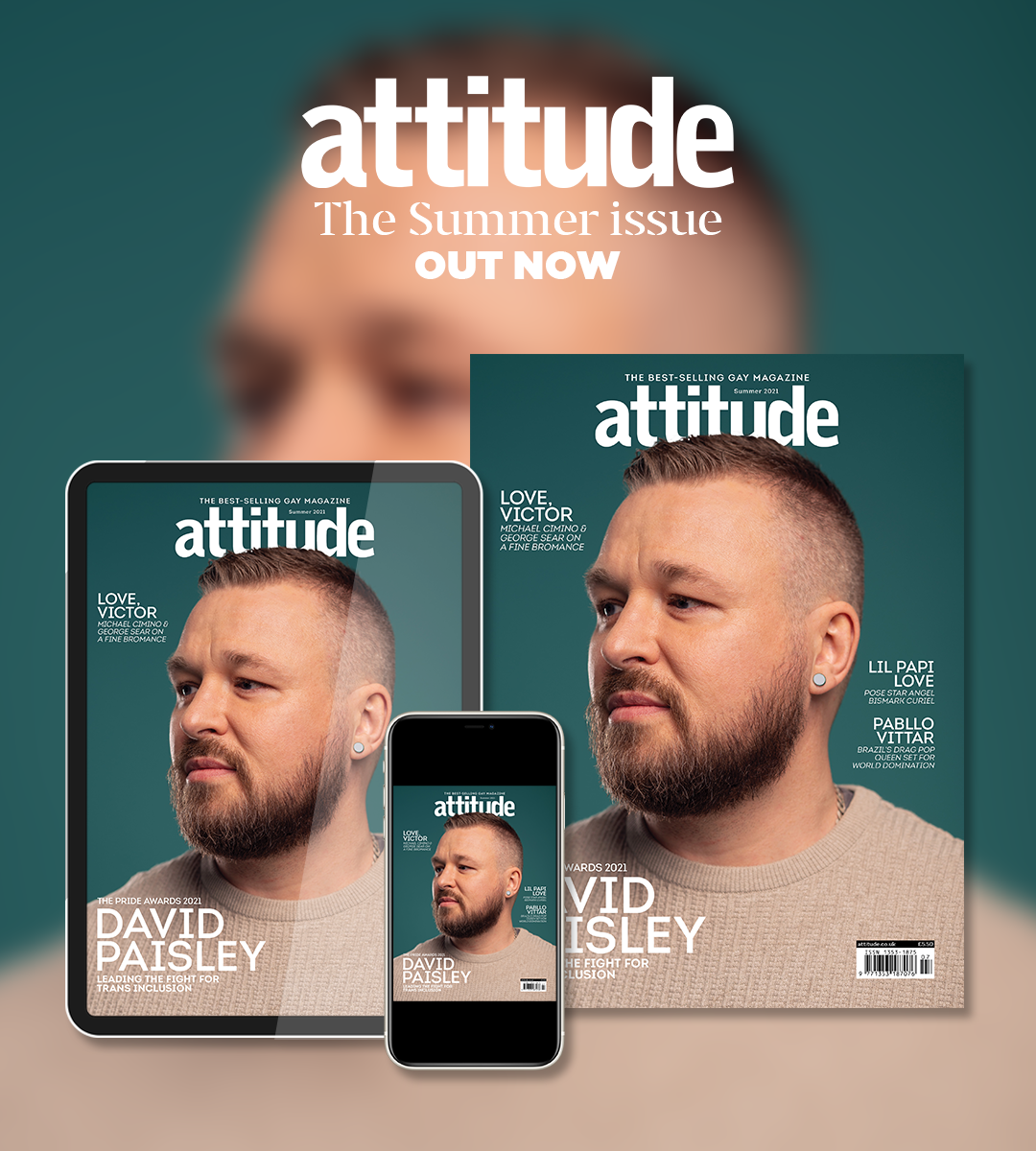The asexual activist dispelling myths around lack of sexual attraction
Model Yasmin Benoit is one of 10 everyday LGBTQ heroes honoured at the Attitude Pride Awards 2021, supported by Clifford Chance.

Interview: Thomas Stitchbury; pictures: Markus Bidaux
The Attitude Pride Awards, supported by Clifford Chance, are part of Attitude Pride at Home, in association with Klarna.
Championed as “the face of asexuality”, Yasmin Benoit is modest when asked about the work she has done in reclaiming the narrative around asexual people. “It’s very flattering, it’s not a title I ever expected to have,” she says.
“I guess the community saw something in me and just really supported and amplified me and thought I would be a good person to spread this message.”
Growing up in Reading, Berkshire, but with a distinct American twang to her voice (she blames Nickelodeon TV), the model, activist, writer and speaker always knew she would dance to the beat of her own drum, from being the only Black girl in her school. “They’d call me coconut – I was ‘white’ on the inside because I listened to rock music and wanted to be Billie Joe Armstrong” – to then identifying as asexual, the term given to those who experience little to no sexual attraction.
“There is a whole wide range of asexual experiences out there.”
“I like to describe it as being the sexual orientation that just isn’t orientated anywhere,” she explains. “Being asexual doesn’t necessarily mean that you don’t experience romantic attraction.
“I happen to not experience romantic attraction – I am what they call a-romantic – but there are asexual people who are homo-romantic, bi-romantic or hetero-romantic and they still have romantic relationships. There is a whole wide range of asexual experiences out there.”
The ace community are often depicted as “being very unfortunate, strange aliens struggling to function in our society” or simply ignored, an understandable cause of frustration for the 25-year-old.
“We knew about being gay. We knew about being bi. We knew about those things, and they were talked about, people accepted them as sexual orientations, but no one spoke about asexuality,” she sighs.
“Statistically, people have said [asexuals make up] one or two per cent of the population, but, like, two per cent is ginger and we all know a ginger person, so even if it is a tiny percentage, it’s still not that uncommon. I feel like if more people knew what asexuality was, they would be, like, ‘Actually, yeah, that does fit me.’”
“I’ve always been told that I don’t ‘look’ asexual”
Determined to be seen, Yasmin created the #ThisIsWhatAsexualLooksLike movement to hold space and inspire her asexual family: “I’ve always been told that I don’t ‘look’ asexual. People picture Sheldon Cooper [from The Big Bang Theory] — awkward, shy and unable to socialise properly.

“They think if you don’t experience sexual attraction, you must be a black hole of sexual attractiveness… especially being a model, people find it harder to wrap their heads around, and they definitely don’t seem to picture Black people, particularly Black women, as being asexual.”
She continues: “I remember it was National Coming Out Day in 2017 and I did a YouTube video about things not to say to asexual people, just based on the dumb stuff people have said to me, and I didn’t really expect that many people to care, but they did, and I was like, OK, well, maybe I’ll mention it [my asexuality] more often.”
One of the highlights of Yasmin’s activism was opening a pop-up asexual bar at London Pride in the summer of 2019. “I ran into someone on the train afterwards, we just made small talk, but he knew who I was. [I found out] that he felt like that was such a pivotal moment that he then came out to his friends and family that same day,” she smiles.
“I get a lot of messages… particularly from Black asexual people who are, like, ‘I didn’t really feel like I fit in, but then seeing you in this community made me more comfortable and represented.’”
“It’s really daunting, especially as a woman…”
On the flip side, Yasmin has had to develop a thick skin to deal with the waves of aphobia that come her way. “Online, I’m more familiar with. You get death or rape threats, people saying, ‘I hope you die,’ those kinds of things – I’m used to it. Or people saying, ‘You’re a psychopath, you’re a narcissist.’ People theorise [too], ‘Oh, well, you probably just got molested as a kid.’ Or ‘You’re evil and heartless,’” she shares, almost nonchalantly.
“In real life, it’s really daunting, especially as a woman… You’ll have an instance where a guy will hit on you – usually, I try to dodge the subject, but sometimes I do say, ‘Actually, I’m asexual. Nothing to do with you, it’s not a reflection of you, this just isn’t going to happen.’ I have had [times] where guys have gotten pretty mad about it and physically chased me around, and I’ve had to run from them. You can’t press ‘block’ in those situations.”

Although able to “emotionally handle” the haters, Yasmin admits it hurts that the LGBTQ+ community haven’t been especially inclusive – “Because of the miseducation and misconceptions around asexuality, people think that you are anti-sexuality and you’re going to come in there and say, ‘Stop talking about sex, stop being proud of your sexuality!’” – and she hopes her Attitude Pride Award will open up the conversation.
“This is the first thing I’ve ever won in my life – I didn’t even win relay races at school,” she says.
“Asexual activists have existed for a really long time, but I can’t think of when an asexual activist has been nominated or considered for or won anything like this before. So, this is a pretty pivotal moment and a great way to exemplify asexual inclusion within the LGBTQ+ community.
“This makes a pretty cool statement and I feel like this is my proudest achievement and not something I saw coming.”
Read more about this year’s Pride Award recipients in the Attitude Summer issue, out now.
Subscribe in print and get your first three issues for just £1 each, or digitally for just over £1.50 per issue.

